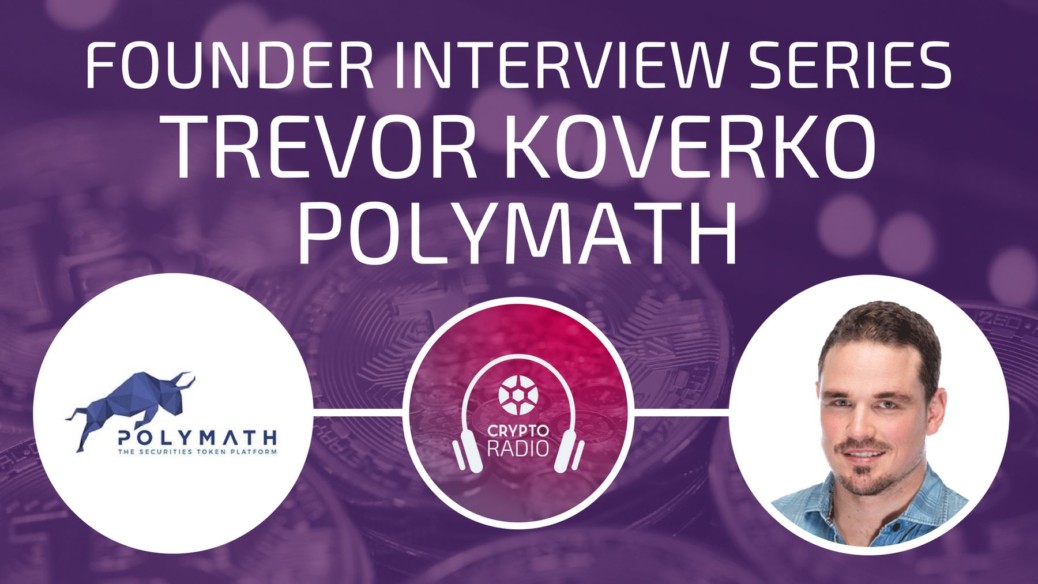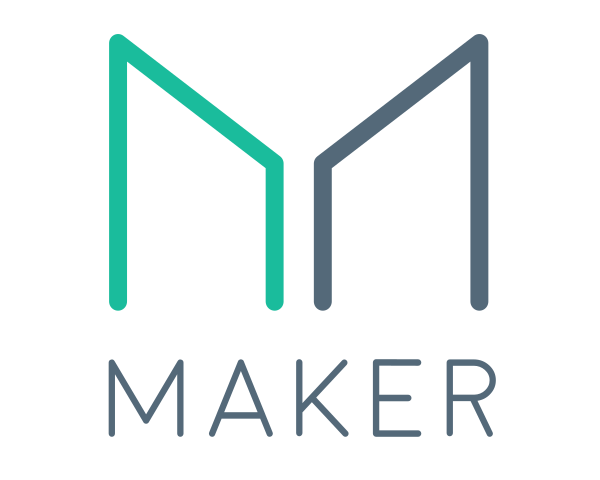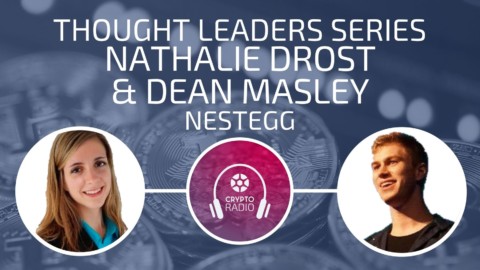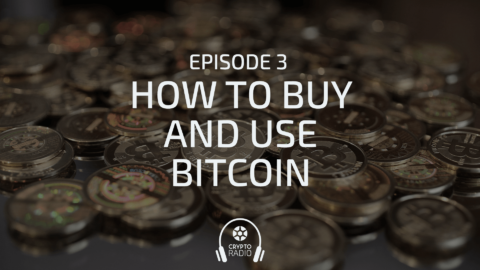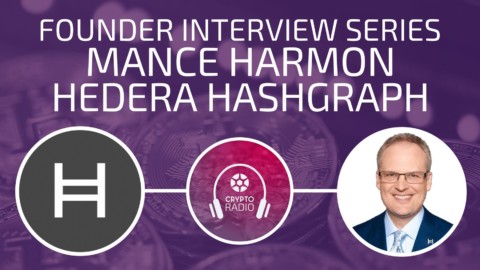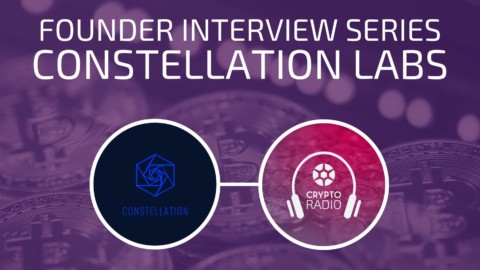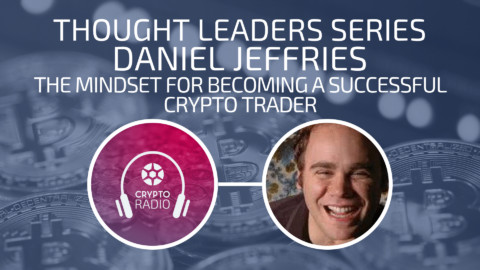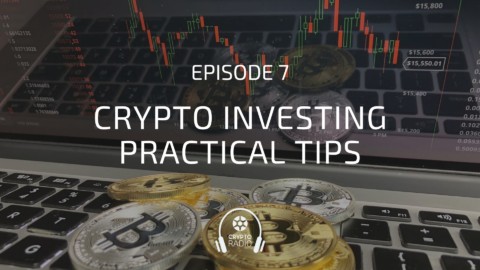Podcast: Play in new window | Download
Euvie: Hi crypto world, I’m Euvie Ivanova and today on the founders series we have Trevor Koverko, the co-founder of Polymath. Polymath enables people to migrate securities to the blockchain in a legally compliant way. They’ve created a security token standard called the ST20, which is the security token equivalent of Ethereum’s ERC20. Securities are a multi-trillion-dollar market and projects like Polymath are facilitating the migration of that to the blockchain. To get the show notes from this [00:00:30] episode go to cryptoradio.io/polymath.
This episode is brought to you by MakerDAO, a decentralized autonomous organization that creates and backs the DAI stable coin on the Ethereum blockchain. DAI is available for purchase on several decentralized exchanges such as OasisDEX and Paradex. For more information about how DAI works, go to cryptoradio.io/maker.
Mike: Welcome to Crypto Radio. We interview the top thinkers and [00:01:00] entrepreneurs in the blockchain and cryptocurrency industry. We also cover topics like training, investing, and ICOs. We’re your hosts Mike Gilliland, Michael Paul, Chris Sparks, and Euvie Ivanova. We’re entrepreneurs, crypto investors, and co-founders of a new blockchain investment platform called cosyndicate.io. We created Cosyndicate and Crypto Radio to make crypto investing a better experience for you.
If you’re new to the show and you’d like a list of our top episodes and resources, go to cryptoradio.io/start. If you like our podcast, you can subscribe, share, [00:01:30] and follow us on social media, and leave us a rating and review on iTunes and elsewhere. It helps others find the show and we really appreciate it. You can find all those links at cryptoradio.io/start.
Euvie: Welcome to the show.
Trevor: I’m glad to be here, thanks for inviting me.
Euvie: Why don’t we start with your elevator pitch.
Trevor: Polymath helps businesses launch compliant security tokens.
Euvie: Security tokens, from what I understand, are gonna be super relevant in the next couple years and are probably gonna surpass utility tokens. How did you come up with that [00:02:00] idea?
Trevor: Yeah, I agree. I think that’s the big megatrend in crypto these days is assets getting tokenized. For me, it all started in 2012 when I bought my first Bitcoin. That was the gateway drug for me and I fell down the rabbit hole after that and never looked back. Yeah, I bought my first Bitcoin. After that, I was doing a lot of advising and investing. I was involved in the early ICOs. Back then, they were on the Bitcoin blockchain not Ethereum. [00:02:30] You had to figure out how to decouple Bitcoin from the blockchain, which wasn’t designed for other alt coins it was just designed for some native coin Bitcoin. Anyways, I was involved in Master Coin and Made Safe, Factom, some of the early ICOs and right away I thought it was the coolest thing, that you could basically IPO a protocol as I saw it.
Then one day, Ethereum came along and I was very lucky to be in Toronto at the time, that’s where Ethereum was founded. I was close to that project, I invested in their token sale. I think you [00:03:00] get 2,000 Ether per Bitcoin back then. Bitcoin was only a couple hundred bucks back in 2013. Then Ethereum came along and then, at the time, I was running a fund, I was an entrepreneur, as well. I had a private equity fund that invested in cash flow, specifically cash flow in tech companies. I decided one day, “I’m gonna tokenize it.” That was my big idea. I was gonna take this cash flow from my fund and turn it into a dividend paying token. I was very excited to [00:03:30] commercialize this and be the first security token.
Ultimately, it never happened because the SCC decided – it turns out, what I was doing was a security. I had to figure out how to get compliant, how to register, how to restrict secondary trading. There was all these things I had to consider. It’s at that point I realized that maybe there’s a better way, maybe instead of watching my own little micro-fund, if I could launch a platform that could launch thousands of micro-funds, [00:04:00] it would be a more highly leveraged initiative for me. That’s the story behind Polymath.
Euvie: Yeah, it sounds like you were trying to solve your own problem and then you came up with a solution organically.
Trevor: Exactly, yeah. I was eating my own dog food, so to speak.
Euvie: How are you guys doing that exactly?
Trevor: We have a standard called ST20, it’s like ERC20 but for security tokens. Basically, what we’ve done is we’ve made crypto more regulatory friendly, we’ve made compliance [00:04:30] baked in at the protocol level. What I mean by that is any business now can confidently launch their own coin knowing they can make it compatible with whatever local regulatory frameworks are in place. Whether that’s restricting trading, whether that’s insuring everybody’s KYC properly, whether it’s having certain limits and ceilings on various funding. All those things that you need to have to be compliant, we try to solve inside the token itself.
Euvie: Are you guys working with specific [00:05:00] jurisdictions primarily or is it global?
Trevor: We’re global, like Ethereum is global. We want to make it so we don’t discriminate if you’re from a country that doesn’t have established securities laws or doesn’t have a crypto community. We still want you to be able to watch your own tokens. The way we’ve done that is just by releasing our code, we’ve open sourced everything and, no matter who you are, you can use the tools that we’ve built to launch your won tokens. What we did to think about being a global [00:05:30] project first is we studied different regulatory bodies and we found the common denominator between them.
We released those types of feature directly into our product. Basically, the SCC is the elephant in the room. If you’re compliant with the SCC, you’re likely compatible with whatever local frameworks are in place. I think it’s also important to note that there’s two kinds of key factors in terms of where you regulate it, what jurisdiction. It’s like picking your company, where you domicile, [00:06:00] that’s number one. Number two, which is actually probably even more important than number one, is where are your investors from. Yes, we can call them investors, not purchasers because it is a security and they’re making an investment for profit. That’s one of the conditions of the [inaudible [0:06:14] test. The second thing is where your investor’s from. That’s very important because the regulatory bodies, that’s their mandate is to protect quote unquote grandma, protect retail investors who aren’t sophisticated.
It’s very, very important for you when you launch your security token [00:06:30] on Polymath or anywhere else, it’s important that you consider where your investor’s from and then you have to understand that you’re probably going to be under the purview of whatever regulatory body oversees that jurisdiction.
Euvie: Yeah. I want to understand a little bit about how the sausage is made. Can you tell us about the nitty gritty of exactly what category these security tokens fall into from the regulator sense?
Trevor: First of all, we have to admit that what we’re doing is a security. [00:07:00] There’s pros and cons to that but I think the most important feature of admitting your security is that you know what rules to apply, you know that there’s 100 years of Chase law that goes back to 1933 basically when the Securities Act was implemented. Since then, there’s all kinds of precedents that have been set and tests that you know to apply and that’s the main thing is that you admit that you’re a security. What the regulators like about this, I think, I see this all the time, the regulators want [00:07:30] innovation.
They’re not out there to just stop people from innovating. They have a dual mandate, it’s to protect retail investors but also to not stifle innovation. Security tokens I think are an amazing middle ground there, because on the one hand the regulators want crypto to flourish but they also want their existing legal frameworks to be respected and they want to make sure that their existing laws have integrity. I think that’s why we’ve got such good feedback from regulators globally, [00:08:00] is that we’re helping them do their job and we’re helping provide more support to their existing frameworks.
Euvie: Right, that makes sense. Does it roughly fall under the same regulation as equities or is it something else?
Trevor: Yeah, it is. It’s really simple. A security token, I say this all the time, a security token is just a unit of ownership. It’s a share in an equity or it’s an LP share in a fund or it’s a unit in an investment trust. [00:08:30] That’s all it is, it’s just one way to look at ownership, whether it’s just one way to look at ownership, whether it’s the legacy way which is a share certificate that collects dust in a filing cabinet somewhere, or whether it’s the 2.0 version which is smart contracts, which is having your ownership being programmatic so you can actually do interesting things with tokens that you can’t do with static equity, like share certificates.
Euvie: Yeah, that really makes sense. Digitizing all of that stuff has been a long time coming anyway and it seems this could be it.
Trevor: Yeah, absolutely. There’s a lot of exciting things you can do [00:09:00] once you have crypto ownership. You can actually automate a lot of your business processes. You can remove friction when it comes to back office things like proxy voting and paying dividends and fundraising. All that stuff can be dramatically improved when it lives on top of a smart contract, not on a filing cabinet.
Euvie: Do you guys have competitors? Are there other people doing similar things?
Trevor: Yeah, we were I think one of the first to get the megaphone out and tell people of the [00:09:30] coming tsunami of security tokens. We started this back a couple years ago. Nowadays, everybody is talking about, everybody is trying to solve problems in the ecosystem. I think this is a really good thing because, as much as we’d love to be the only [inaudible [0:09:43] in town, that’s actually not going to work, because this whole ecosystem needs to be developed. All of this infrastructure that Wall Street enjoys, like custodianship services, custody, like I just said, transfer pricing, exchanges, all these infrastructure [00:10:00] aren’t built for the crypto community yet. Everybody needs to rally together to make this work. That’s why there’s not a lot of security tokens in existence today because there’s a lot of uncertainty and a lot of work to be done.
Euvie: How far along are you guys with the project now?
Trevor: We’ve been working really hard, we released our main net earlier this year and we just released a big update to that. We have our test net live for Polymath 2.0 and we’re very excited about it. We’ve been blown away by the demand we’ve received from issuers all over the world, [00:10:30] thousands of funds of real estate projects, of start-ups, everybody’s looking to launch their own token and I think we’re the global leader by pretty much any metric in terms of security token platforms. We’re really hoping to start building our network effect with issuers and investors as soon as we can.
Euvie: What is your roadmap looking like for the next 6 to 12 months? What are you guys planning to do?
Trevor: Yeah, we’re just hustling with launches. We want to get as many security tokens out the door. It’s not a fast process because you’re interfacing with existing regulations that you [00:11:00] can’t really streamline. We’re still trying to and we’re still innovating on expediting the process but we expect to have a lot of high profile launches this year. We’re using fundraising as one of our main metrics so we want to help projects raise capital, just like Ethereum helps projects raise capital. Yeah, stay tuned, we’ve got some existing announcements in that department coming up.
Euvie: Nice. What are some of the key milestones that you think will determine your success in this timeframe?
Trevor: Yes, tokens, how many tokens can we launch that are [00:11:30] powered by Polymath. That’s number one. Number two, how much funds have been raised in the network and we’re trying to maximize that, as well. Finally, we want to have a lot of secondary market activities. We want all of our Polymath powered tokens to be listed on exchanges and traded. Right now, that’s impossible because exchanges don’t really exist in a scalable way but that’s all changing. We have some of our close contacts at T Zero are launching exchanges very soon, [00:12:00] we’re very close with those guys. There’s [inaudible [0:12:02] is a Canadian project we’re excited about. There’s Templum, there’s all kinds of exchanges coming online. Even though we’re closest with T Zero and we’re gonna have some partnerships with them, we also see a lot of activity, too.
Euvie: There aren’t any exchanges that accept security tokens right now but there are a few launching, is that right?
Trevor: Generally speaking, I think Templum may be live. I think the point, though, is nothing’s really fully commercialized yet. It’s in the process, [00:12:30] there’s a lot of smart people working on solving these problems, I’m confident they’ll get solved.
Euvie: Yeah. That seems like a very exciting area with a lot of just wide-open fields where people can innovate if they want to.
Trevor: Yeah, absolutely. Crypto’s the most exciting space to be in and I think security token is the most exciting space within crypto.
Euvie: Can we talk about your team a little bit. How did you guys all meet and what are your backgrounds? What did you do before crypto?
Trevor: Absolutely, Chris is my co-founder. He is also from Toronto, [00:13:00] we grew up in the same city downtown. He’s a lawyer. He’s a rare combination of being a really smart legal professional and also knowing crypto.
Euvie: Yeah.
Trevor: Yeah, he’s a very rare unicorn back in those days. I pounced on getting him to join the project early. He’s been indispensable, getting our legal frameworks set up in all the other aspects of our early days. We also brought in some really smart developers, that was a priority for us, getting the best technical people we could. That’s why we brought in guys like [00:13:30] Adam Dosa. He worked on Wall Street, he was a director level technical manager at some of the big banks on Wall Street. Then also guys like Pablo Ruiz, he’s a machine for us. He’s done a lot of really important things at the technical level, pushing our core protocol out. He oversaw a lot of our token distribution. He’s amazing, he’s out in Argentina.
He’s a very prominent in the solidity space, he does a lot of blogging and [00:14:00] leadership in that department. We also have a couple guys also in Toronto who come from the banking world. Cal, he’s actually from New York but he worked at the Abu Dhabi sovereign wealth fund. Now, he’s leading our issuers team, which we’re excited about. Igor, as well, who worked at Canada’s largest independent investment bank. He’s working on our partnerships and helping out with issuers, as well.
Euvie: You mentioned some of security tokens exchanges that you guys are talking with, are there any other partnerships worth mentioning or any advisors?
Trevor: [00:14:30] Yeah, absolutely. We’re very fortunate and blessed to have one of the best advisory teams in the world guys like Eric [inaudible [0:14:38], David Johnston, Anthony Diiorio, Matt Rosak, Steven [inaudible [0:14:43] and they’re very lucky, Patrick Burn. These are co-founders of companies like Shapeshift, Overstock, Ethereum. The best in the business we’re very, very lucky. They’re also very active and engaged, which they’re not just on a slide deck somewhere, we have weekly [00:15:00] meetings with many of them and it’s very exciting to me that we can keep those guys interested because there’s so many other exciting projects going on.
In terms of partnerships, we’ve been very busy, as well, working with KYC providers, exchanges like you said, all kinds of other infrastructure businesses that we need to piggyback off of. Some examples are Shift, that’s a local Toronto company, as well. I should say Toronto’s got a great critical mass of talent and blockchain capital.
Euvie: Yeah, it sounds like it.
Trevor: Yeah, no, it’s true. This is a very underrated [00:15:30] cluster, not just in crypto but all of the, that’s why we’re here. Because of Ethereum minting so many crypto millionaires, a lot of that has been recycled back into the community and we’re actually the benefactor of some of that capital, as well. I think that’s the Silicon Valley effect is unfolding here in Toronto. Yeah, lots of other Toronto projects, we love [inaudible [0:15:50] is a close project of ours that we learn a lot from and vice versa. They’re in Toronto, they do blockchain and inoperability, and we see some future partnerships with them at some point. Shift, like I was saying, [00:16:00] Joe Wineburg’s company, is an identity protocol for all blockchains and we’re excited to work with them to help get as many accredited investors into our network as we can.
Euvie: Yeah, it seems that the space is becoming more mature and the focus is more on the accredited investors, high net worth individuals rather than just a 20-year-old guy in his basement.
Trevor: Yeah, exactly. You have to respect the regulations and there’s exemptions to the Securities Act [00:16:30] that are great and they allow us to help other businesses raise money in an innovative way. Yeah, it’s very important, that’s a common denominator, like I was saying is accredited investors and are you suitable, are you accredited to invest in this product, that’s what the regulators want to know. We’re very close to helping people help themselves when it comes to making sure everyone’s accredited. That’s one of our priorities is figuring out how to make sure only accredited people can be in our ecosystem, for the most part.
Some regulations actually allow some retail investors, [00:17:00] it’s very limited. Generally speaking, we have to prevent non-authorized, unaccredited investors from holding tokens. That’s the key, we have to restrict non-authorized people from holding, buying, or selling, or trading the token. We came up with some innovative ways on how to do that. It’s kind of ironic because crypto is supposed to be open and it’s supposed to be free and democratic. What we’re trying to do is restrict some of that. It’s a shame because we do generally believe that everyone should be able to invest in exciting projects, [00:17:30] especially crypto projects but, unfortunately, the regulations don’t allow that and, of course, we do want to protect investors, as well. We’re very thankful and grateful for the regulators we’ve been working with.
I think, by and large, the global regulation community has done a great job, they haven’t overstepped too much, they’ve allowed this community to flourish a little bit. They’re cranking down on fraudsters and I think that’s amazing, we need more of that, more protection from pyramid schemes and other crypto scams. I do tip [00:18:00] my hat to US and Canadian regulators, especially for what they’ve done so far.
Euvie: The definition of accredited investor might also change with time. There’s some people in the field that have ideas about new ways of defining an investor that is capable of investing in the space, maybe just somebody who’s worked in the space for long enough who understands the technology but maybe isn’t at the same wealth level that a traditional accredited investor would be.
Trevor: Yeah, that’s my personal view is that some of these laws seem a [00:18:30] little bit antiquated and outdated. If Ethereum was a security, there would be 10,000 people that would not have become millionaires. Most Ethereum people were retail investors. I was probably a retailer investor back then, 2012 or 2013. I think there’s some truth to that. If someone’s rich but unsophisticated, why should he be able to invest in a project, whereas someone who’s smart but not rich, she’s not allowed to participate. To me, that’s seems a little unfair. I do see why those rules exist. [00:19:00] You have exploitative founders who unscrupulously take money from grandma but at the same time I think it’s a balancing act and they’re doing a great job.
Euvie: What are some of your marketing strategies? How are you planning to reach your target market?
Trevor: Marketing’s very important and we take a lot of pride in our marketing because you’ve got to stand out, there’s so much noise, there’s so much saturation in the space. You’ve got to tell your message and you’ve got to evangelize, you have to convince businesses who aren’t technical [00:19:30] necessarily to use crypto and to benefit from it. A lot of what we do is community building, I think community is the most important metric in any decentralized project. We have one of the most vibrant and large communities in the space. We were the first group to max out Telegram’s 50,000 limit back when we did our sale. We take pride in that, we don’t think it’s a vanity metric at all because, like I said, the health and the success of a project is literally how robust and how engaged the community is for your project.
Euvie: You guys do conferences, [00:20:00] as well. Actually, one of my co-founders for another project attended your conference a couple months ago.
Trevor: Yes, we did. Polycon. Without trying to sound like we’re bragging, it was one of the best received events I’ve ever been to. I wish I could take more credit. We had an amazing events team put it on but we blew the doors off and we’re excited to do another one soon.
Euvie: What is your revenue model for the business. Do you guys take a percentage of each raise that comes through or is it a flat fee? How does it work?
Trevor: [00:20:30] It’s similar to Ethereum. Ethereum doesn’t really have a business model. Our core protocol operation doesn’t either, we don’t make money. It’s kind of like Linux, already open source community. That’s not the point, we’re not trying to make success fees on projects. Yeah, just like Ethereum, our core foundation doesn’t have a business model. That said, there are lots of interesting business models that are merged on top of this protocol. There’s lots of services and advisory business and exchanges, custody services [00:21:00] and all these other kind of for profit businesses that I think can and should be thriving. We’re not ruling out being active in supporting those people from the community, as well.
Euvie: Why should people get involved in your project and what do you think is the most exciting thing about what you guys are doing?
Trevor: Security tokens, baby. It’s getting every business, we think there’s a trillion-dollar opportunity literally when these funds and businesses start to tokenize – trillions of dollars. We think we’re right [00:21:30] at the inflection point this year, 2018, where security tokens start to commercialize. Now is the time and this is the place to be. Don’t miss out.
Euvie: Awesome, thanks so much for joining me today.
Trevor: Thanks Euvie.
Trevor Koverko introduces Polymath, a network which enables people to migrate securities to the blockchain in a legally compliant way.
Trevor Koverko is the co-founder of Polymath, which helps businesses launch legally compliant security tokens. They have created a security token standard called ST20 which is the security token equivalent to Ethereum’s ERC20. ST20 standard made crypto more regulatory friendly – any business can confidently launch their own coin, knowing they can make it compatible with every local regulatory framework.
Trevor sees security tokens as a unit of ownership and the middle ground between people’s desire for crypto to flourish and the need for it to be legally compliant.
They are expecting many high profile token launches by the end of this year.
Polymath has several partnerships in place with tZERO, Hyperion Fund, Templeton Foundation and several exchanges.
Resources:
- Polymath website
- Trevor Koverko
- Polycon conference
- Crypto Radio’s Founder Series

